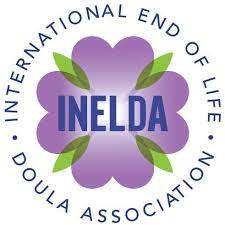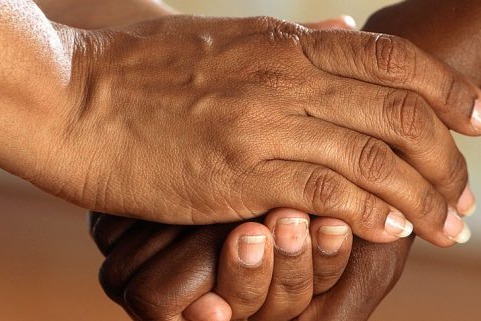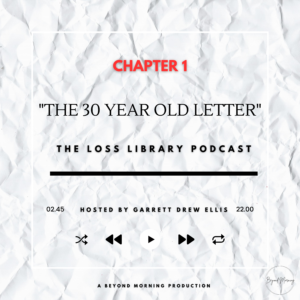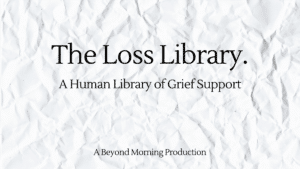In many cultures and families, when a loved one dies or is given a terminal illness, chaos sometimes ensues. Fights over finances and last wishes, unresolved issues and incomplete conversations all add to the tension of a very difficult situation. Often, the person who is dying experiences deep loneliness and regret over things left unsaid and undone. And even if the situation isn’t chaotic, people may desire to leave behind something to be remembered by to process meaning in their lives. Families too feel the effects of loss, often not knowing how to navigate the grieving process. Thus the need for End of Life Doulas.
When my mother died, much of this was my experience. I was very young but still, I wish that there had been an unbiased, impartial support system available to me and my family. I wish that someone outside of our immediate circle was there to hold our hands and help us do those things we thought were impossible at the time. I wish that as she died, someone was holding her hand.
The EOL Doula Model
In 2017, I saw an Instagram post about a book entitled “Caring for the Dying: The Doula Approach to a Meaningful Death” by Henry Fersko-Weiss. I had volunteered in hospice before but the title of this book alone intrigued me like no other. As the obsessive Amazon shopper that I am, I immediately bought it and had it shipped to my home.
Reading that book felt like the opening of temple doors. The cracking open of my chest and my heart. For two years, through a rather tumultuous time in my life, I sat with the desire to live out that book and believed that one day I would be able to serve in a death doula capacity.
In reading that book, I llearned that doulas are servants. Attendants. They are caregivers, supporters and shoulders to lean on. When most people hear the word “doula”, they think of the birthing world when a birth doula assists a pregnant woman in having a baby. But birth is only one end of the spectrum. At the other there is death and there too, doula’s can be of assistance as consciousness separates from the body. The type of doula I wanted to be and that Henry’s book describes is that: a soul servant. A person who views death as just as sacred of life and wants to help people through that process.
When helping people understand what an end of life doula is, this definition has been extremely helpful:
An End of Life Doula is a professional trained in the art of death support, providing emotional, physical, and educational aid to a dying person and/or their family. The doula’s purpose is to help the individual define what a “good” death means for them, doing so with as much grace, peace and support as possible.
An End of Life Doula is a professional trained in the art of death support, providing emotional, physical, and educational aid to a dying person and/or their family. The doula’s purpose is to help the individual define what a “good” death means for them, doing so with as much grace, peace and support as possible.
Practically, a death doula’s services can include the following:
- Fostering conversation around finding meaning in a dying person’s life.
- Helping create legacy projects or memorials to remember one’s life after death. Examples include writing memoirs, creating scrapbooks or photo collages, commissioning tree or bench memorials, etc. Legacy projects are wide, varied and unique to the life being remembered.
- Writing Vigil Plans: What do you want your last breath to be like? Who or what would you like in the room with you?
- Sitting Vigil during active dying: If you would like, a doula can be with you and/or your family during the active dying process.
- Grief Reprocessing
- Advocacy on behalf of the dying person and their last wishes
- Advanced Planning
- Death and Grief education for families and the general public
While the death doula world is an unlicensed profession, most effective and reputable doulas have been trained and/or certified by professional organizations. They have often done extensive training in bedside support and rapport, active listening as well as in grief support. They are not however, licensed therapists, medical professionals or counselors. They are well educated people working to support other people through the dying process. At Beyond Morning, we are trained by and follow the Code of Ethics and Scope of Practice instituted by INELDA.

We have also studied best business practices for end of life work through Going With Grace and Death Doula extraordinaire, Alua Arthur.

Doulas can provide simple bedside care like sympathetic touch and mouth care ( wiping mouths, providing water, etc) but they do not offer medical advice or administer medication. Additionally, they can listen, ask probing questions and empathize but they are not grief counselors or therapists unless they hold a separate counseling credential.
The unique characteristic of death doulas are that we are compassionate people who have often been touched personally by the dying or grieving process. We often come from backgrounds such as hospice nurses or volunteers and want to utilize those skills in more emotional ways versus in a clinical setting. The difference between a hospice volunteer and a death doula is that hospice volunteers are bound by the clinical policies of their organization. Death doulas differ in that they are only limited by the doulas’ expertise and boundaries, not agency regulation. They can use personal experience to support any service a client or family may request. This can include things like funeral preparations, legacy planning, advocacy, etc.
For more information or to find out how you might utilize Beyond Morning’s End of Life Doula services, feel free to get in contact with us here.





